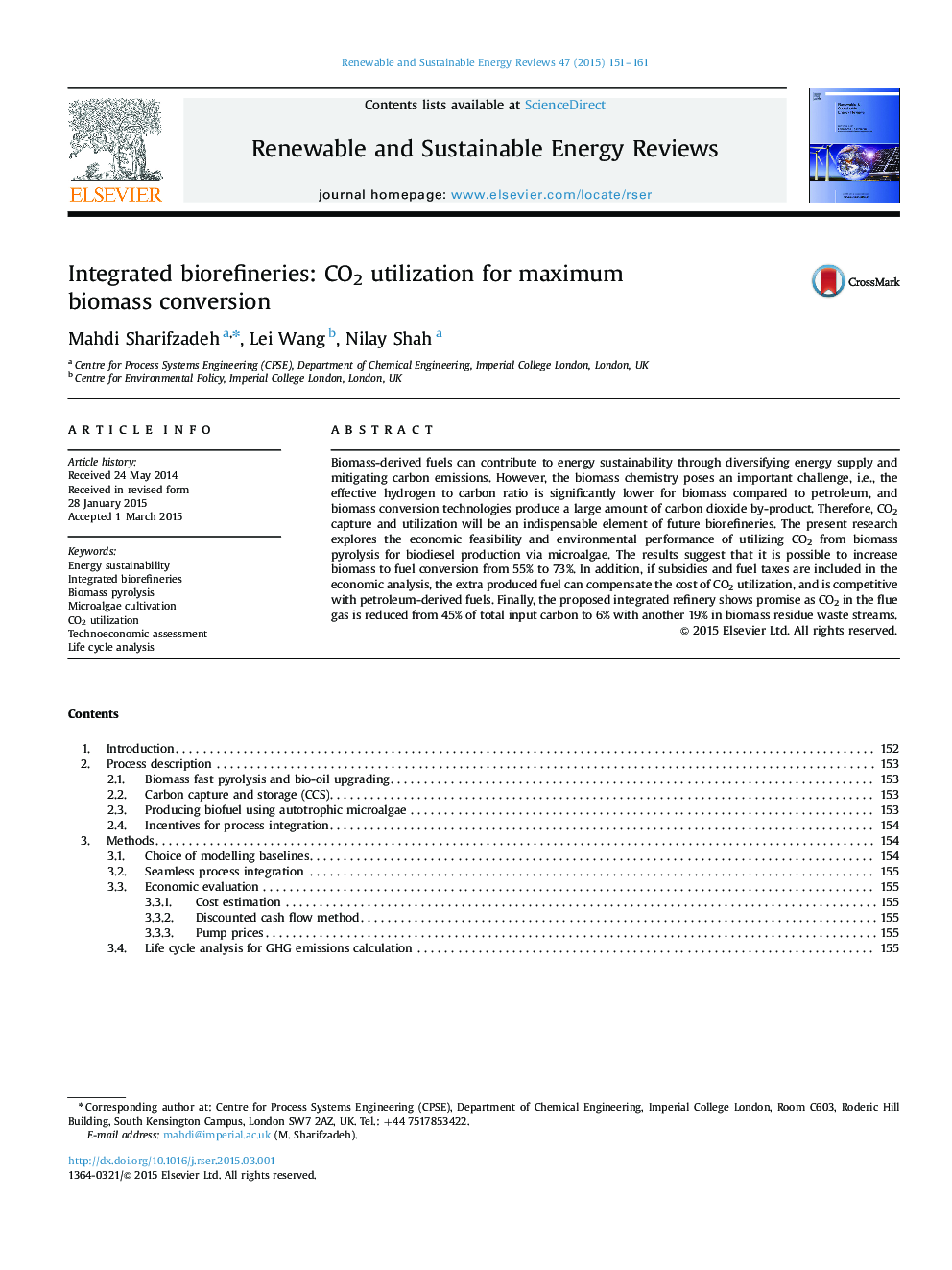| Article ID | Journal | Published Year | Pages | File Type |
|---|---|---|---|---|
| 8116659 | Renewable and Sustainable Energy Reviews | 2015 | 11 Pages |
Abstract
Biomass-derived fuels can contribute to energy sustainability through diversifying energy supply and mitigating carbon emissions. However, the biomass chemistry poses an important challenge, i.e., the effective hydrogen to carbon ratio is significantly lower for biomass compared to petroleum, and biomass conversion technologies produce a large amount of carbon dioxide by-product. Therefore, CO2 capture and utilization will be an indispensable element of future biorefineries. The present research explores the economic feasibility and environmental performance of utilizing CO2 from biomass pyrolysis for biodiesel production via microalgae. The results suggest that it is possible to increase biomass to fuel conversion from 55% to 73%. In addition, if subsidies and fuel taxes are included in the economic analysis, the extra produced fuel can compensate the cost of CO2 utilization, and is competitive with petroleum-derived fuels. Finally, the proposed integrated refinery shows promise as CO2 in the flue gas is reduced from 45% of total input carbon to 6% with another 19% in biomass residue waste streams.
Keywords
Related Topics
Physical Sciences and Engineering
Energy
Renewable Energy, Sustainability and the Environment
Authors
Mahdi Sharifzadeh, Lei Wang, Nilay Shah,
